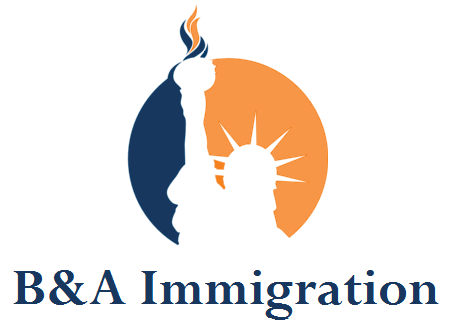Green Card Through Investment
Investors are able to obtain a green card through investment in a business in the U.S. if at least $1 million or $500,000 (in a high-unemployment area) is invested into a U.S. business that will employ at least 10 US workers.
All EB-5 investors must invest in a new commercial enterprise, which is a commercial enterprise:
- Established after Nov. 29, 1990, or
- Established on or before Nov. 29, 1990, that is:
- Purchased and the existing business is restructured or reorganized in such a way that a new commercial enterprise results; or
- Expanded through the investment so that a 40-percent increase in the net worth or number of employees occurs.
Commercial enterprise: includes any for-profit activity formed for the ongoing conduct of lawful business including, but not limited to:
- A sole proprietorship;
- Partnership (whether limited or general);
- Holding company;
- Joint venture;
- Corporation; or
- Business trust or other entity, which may be publicly or privately owned.
This definition includes a commercial enterprise consisting of a holding company and its wholly owned subsidiaries, provided that each such subsidiary is engaged in a for-profit activity formed for the ongoing conduct of a lawful business.
Note: This definition does not include noncommercial activity such as owning and operating a personal residence.
Job Creation Requirements
- Create or preserve at least 10 full-time jobs for qualifying U.S. workers within two years (or under certain circumstances, within a reasonable time after the two-year period) of the immigrant investor’s admission to the United States as a Conditional Permanent Resident;
- Create or preserve either direct or indirect jobs:
- Direct jobs are actual identifiable jobs for qualified employees located within the commercial enterprise into which the EB-5 investor has directly invested his or her capital.
- Indirect jobs are those jobs shown to have been created collaterally or as a result of capital invested in a commercial enterprise affiliated with a regional center by an EB-5 investor. A foreign investor may only use the indirect job calculation if affiliated with a regional center.
Troubled business: is an enterprise that has been in existence for at least two years and has incurred a net loss during the 12- or 24-month period prior to the priority date on the immigrant investor’s Form I-526. The loss for this period must be at least 20 percent of the troubled business’ net worth prior to the loss. For purposes of determining whether the troubled business has been in existence for two years, successors in interest to the troubled business will be deemed to have been in existence for the same period of time as the business they succeeded.
A qualified employee is a U.S. citizen, permanent resident or other immigrant authorized to work in the United States. The individual may be a conditional resident, an asylee, a refugee, or a person residing in the United States under suspension of deportation. This definition does not include the immigrant investor; his or her spouse, sons, or daughters; or any foreign national in any nonimmigrant status (such as an H-1B visa holder) or who is not authorized to work in the United States.
Full-time employment means employment of a qualifying employee by the new commercial enterprise in a position that requires a minimum of 35 working hours per week. In the case of the Immigrant Investor Pilot Program, "full-time employment" also means employment of a qualifying employee in a position that has been created indirectly from investments associated with the Pilot Program.
Capital Investment Requirements
Capital means cash, equipment, inventory, other tangible property, cash equivalents and indebtedness secured by assets owned by the investor, provided that the entrepreneur is personally and primarily liable and that the assets of the new commercial enterprise upon which the petition is based are not used to secure any of the indebtedness. All capital shall be valued at fair-market value in United States dollars.
Note: Investment capital cannot be borrowed.
Required minimum investments are:
- Generally the minimum qualifying investment in the United States is $1 million.
- Exception: Targeted Employment Area (High Unemployment or Rural Area). The minimum qualifying investment is $500,000.
A targeted employment area is an area that, at the time of investment, is a rural area or an area experiencing unemployment of at least 150 percent of the national average rate.
A rural area is any area outside a metropolitan statistical area (as designated by the Office of Management and Budget) or outside the boundary of any city or town having a population of 20,000 or more according to the decennial census.
Conditional Residence: The EB-5 investor (and his or her derivative family members) is granted conditional permanent residence for a two-year period .90 days before the expiration of this status, a Petition by Entrepreneur to Remove Conditions must be filed.

